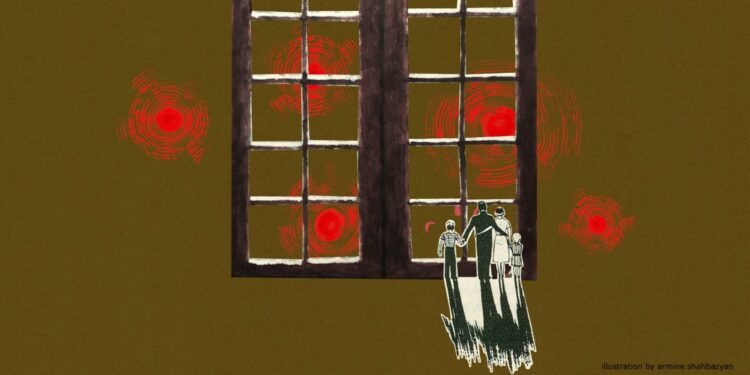Opinion
Will Armenia Catch the EU Candidate State Fever?
It's unclear whether Armenia will follow the same path of neighboring countries in seeking EU candidate status. Yerevan has been cautious, refraining from making any explicit announcements of a significant shift in its foreign policy orientation, writes Anna Barseghyan.
Unbridled Horrors: A Long Way From Solferino
International Humanitarian Law constitutes a critical set of rules with the purpose of mitigating the humanitarian impact of armed conflicts. It has never set out to eradicate all human suffering during conflicts and violations, heinous as they are, do not render the law null and void.
Living in Russia’s Long Shadow
Armenia’s recent turn away from Russia has sparked European hopes that the country could finally join the West. But that’s not the whole story. Karena Avedissian explains.
A Critique of International Law: An Armenian Perspective
The Armenian public’s expectations and perceptions of international law has played a weighty role in the nation’s life. As Armenia has grappled with geopolitical challenges and crises, the role of international law has often been thrust into the spotlight, evoking both hope and frustration. Davit Khachatryan explains.
Beyond an Entente Cordiale: Azerbaijan’s Strategic Partnership With NATO
The growing rapport between Azerbaijan’s dictatorship and NATO has received scant attention. Baku’s deepening partnership with NATO enhances its strategic position in relation to Russia, weakening Armenia, especially if Yerevan fails to recognize the limited support it can truly expect from the West.
Know Thy Resolutions: Unveiling the True Power and Limitations of PACE
In the constantly evolving landscape of international diplomacy, resolutions and rulings often carry the weight of hope, accountability and change. However, the international community’s weak response to Azerbaijan’s devastating hostilities has left many Armenians disillusioned.
Azerbaijan’s Aggression Hidden in Plain Sight
Azerbaijan, emboldened by impunity, is aggressively pursuing an irredentist foreign policy, now targeting Armenia proper. Yerevan must swiftly undertake measures and adopt a robust and unequivocal legal strategy to safeguard its sovereignty and deter further acts of aggression.
Ratified, Unsatisfied: Addressing Ongoing Concerns About Armenia Joining the ICC
While some welcomed Armenia’s ratification of the Rome Statute of the International Criminal Court, a cohort of skeptics remain opposed to the idea. Sheila Paylan addresses the most relevant concerns.
From Constructivist to Liberal Realism: From Nation to State
The restoration of Armenian sovereignty in 1991 prompts us to contemplate the future of Armenia and its position in the international order, writes Gaidz Minassian.This is all the more pressing when the Armenian state has never been thoroughly examined through the lens of international relations theories.
What Happened to the Promise of Leaving No One Behind?
Despite unequivocal evidence, the United Nations, like other international actors, failed to address the threats looming over the Armenians of Nagorno-Karabakh, who today are uprooted, homeless, forcibly displaced with thousands more still fleeing.












